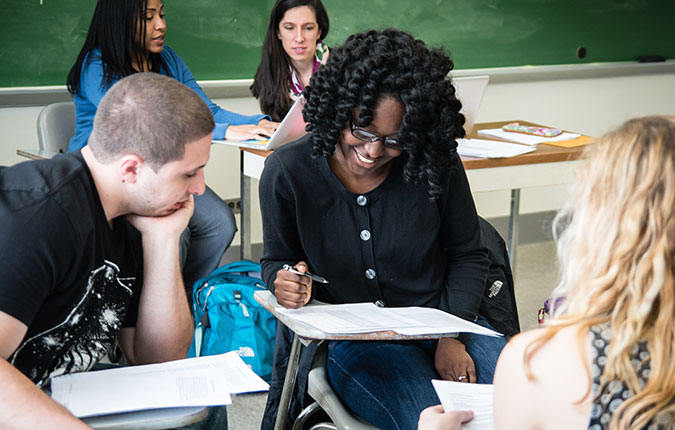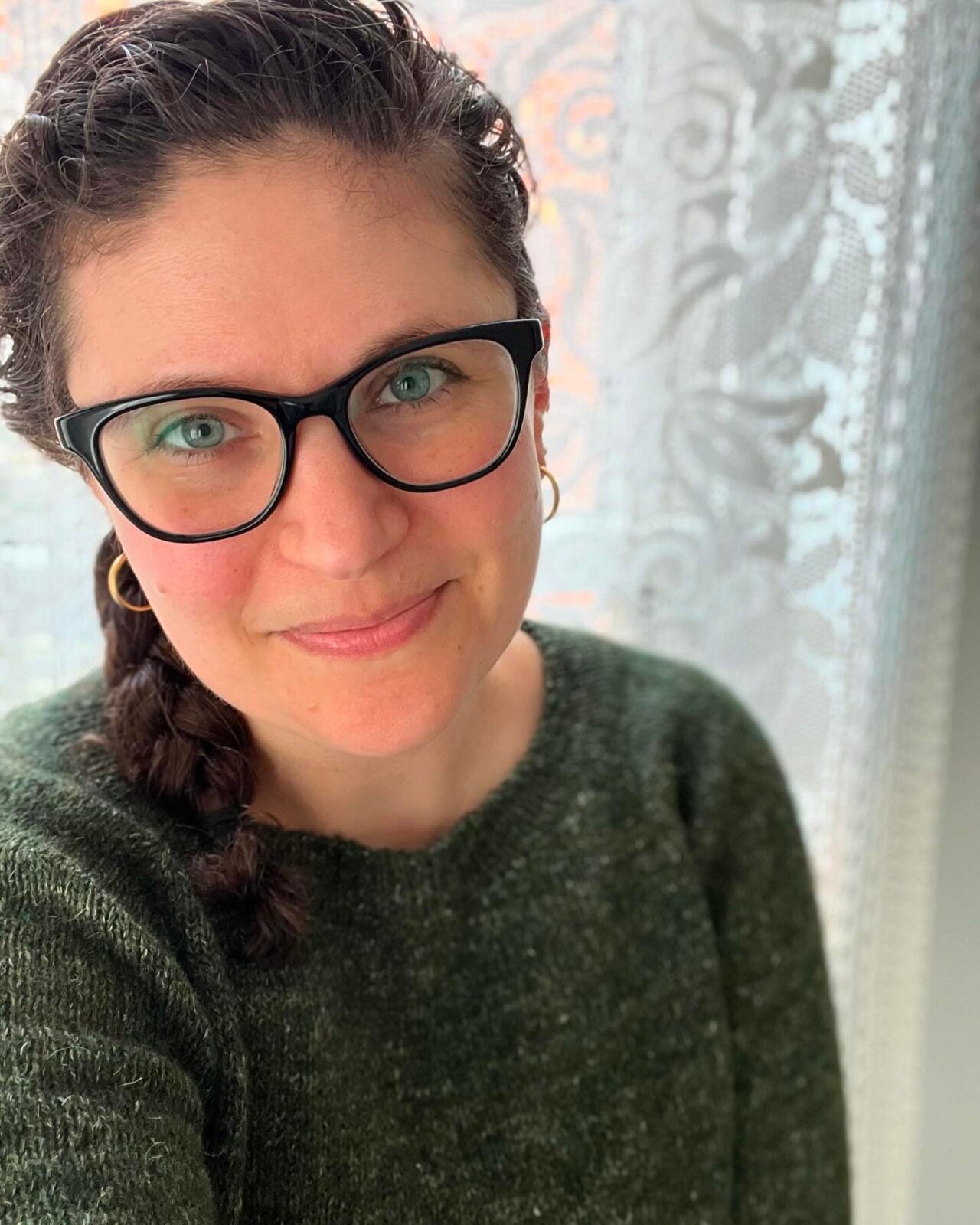ORTNER CENTER ON VIOLENCE & ABUSE
The Ortner Center on Violence & Abuse is a collaborative effort of faculty and students at the University of Pennsylvania who research issues related to violence and abuse against women & girls.
The Center is a vital resource for policy makers, agency directors, researchers, and educators as they search for ways to end violence and abuse against women and girls. In addition to publishing research findings in scholarly journals, Center affiliates teach related graduate and undergraduate courses at Penn. We also testify before policymakers, collaborate with community-based organizations, and reach the general public through various media outlets.

Our Mission
Safe Daughters. Confident Women. Strong Society.
Our Vision
The mission of the Ortner Center on Violence & Abuse in Relationships is to
- Investigate the correlates and consequences of violence and abuse against women and girls in domestic and intimate relations
- Educate the next generation of researchers, practitioners, and policy makers
- Translate research findings to policy and practice
- Engage community and university stakeholders to prevent violence and abuse, create conditions for health, well-being and flourishing for women and girls and, thus, make society stronger.
Penn Faculty Fellows
Scholars
Fellows
Previous Student Fellows
2020-2021
Dana Barnes
School of Social Policy & Practice
Nikita Bastin
School of Arts & Sciences
Lauren Ferreira Cardoso
School of Social Policy & Practice
Paige Fishman
School of Arts & Sciences
Connor Scarlett Hardy
School of Arts & Sciences
Heta Patel
Health & Societies
Angelina Ruffin
School of Social Policy & Practice
Lordess Shabazz
School of Social Policy & Practice
2019-2020
Caitlin Axtmayer
School of Social Policy & Practice
Emily Grace Berkowitz
School of Social Policy & Practice
Clare Choi
School of Arts & Sciences
Sarah Fortinsky
Political Science
Tanya Jain
Health & Societies
Natasha Danielá McGlynn
School of Arts & Sciences
Sonia Reardon
School of Arts & Sciences
Aminat Balogun
Health & Societies
Ana Michelle Bowens
School of Social Policy & Practice
Madison Dawkins
School of Arts & Sciences
Alison Fedoris
School of Social Policy & Practice
Ally Johnson
School of Arts & Sciences
Payal Pal
School of Social Policy & Practice
Adina Pomeranz
School of Social Policy & Practice
2018-2019
Mira Bajaj
Cognitive Sciences
Rachel Benjamin
School of Social Policy & Practice
Blanca Castro
School of Social Policy & Practice
Samantha Daniels
School of Social Policy & Practice
Michelle Donnelly
School of Social Policy & Practice
Tugce Ellialti
School of Arts & Sciences
Anna Estep
School of Engineering and Applied Science
Erin Hartman
School of Nursing
Nia Kaudo
School of Arts & Sciences
Danielle Kennedy
Perelman School of Medicine
Linda Lin
School of Arts & Sciences
Xochitl Luna Marti
Perelman School of Medicine
Meghana Nallajerla
School of Arts & Sciences
Makayla Reynolds
School of Arts & Sciences
Kelly Sagastume
School of Social Policy & Practice
Leticia Salazar
School of Arts & Sciences
Kate Sohn
Health & Societies
Isabel Taccheri
School of Social Policy & Practice
Greta Yucong Lu
School of Arts & Sciences
Abbie Zislis
Health & Societies
2017-2018
Isabella Auchus
Psychology
Irtiqa Fazili
Health & Societies
Sydney Giller
Graduate School of Education
Travis Labrum
School of Social Policy & Practice
Eleanora Mei
School of Arts & Sciences
Elizabeth Novack
School of Nursing
Robyn Oster
School of Arts & Sciences
Devan Spear
School of Arts & Sciences
Roshani Waas
School of Nursing
Olivia Webb
Heatlh & Societies
Jenny Wolff
School of Social Policy & Practice
2016-2017
Aliya Hamid Rao
School of Arts & Sciences
Rebecca Schut
School of Arts & Sciences
Rui Shi
Annenberg School for Communication
Havian Vidal Nicholas
School of Nursing
Jingwen Zhang
Annenberg School for Communication
What we do
The Ortner Center is dedicated to increasing women’s and girls’ health and well-being by identifying societal changes that affect violence and abuse against women and girls, using the state-of-the-field technological advances in theoretical and empirical (qualitative and quantitative) research, and developing the next generation of national and global leaders.
What we believe
Girls and women around the globe live under the threat of violence and abuse. All can live more fully, have the opportunity to reach their potential when they are not afraid or unsafe, and they experience the conditions to flourish.
Who we are
Illustrating Penn’s commitment to cross-School collaboration, the Center brings together multiple disciplines. By working together, we can make progress. The Center is named for Evelyn Jacobs Ortner, who established the Center through a gift to the School of Social Policy & Practice at the University of Pennsylvania. See the link below for more information about Mrs. Ortner.
Executive Program
The Executive Program in Leadership Strategy for Violence & Abuse Prevention, was the first and only executive program for people and organizations working to end violence and abuse. Whether you’re just starting out or the Executive Director of an established agency, this program will enhance your strategic leadership and management skills for more effective social impact work.
The executive program in Leadership Strategy for Violence & Abuse Prevention was put on hold during and in the aftermath of the COVID-19 pandemic which reverberated across the globe. We are pausing, gathering information, reassessing, and adapting. Whatever emerges from our reboot, we remain steadfast in the Ortner Center vision – Safe Daughters, Confident Women, Strong Society.
TEACHING FELLOWS
Katie Marshall

Katie Marshall was in the inaugural cohort of the Ortner Center’s Executive Certificate program in Social Impact Strategy in 2019.A guiding intention throughout her career has been supporting college students in developing more healthy and productive lives. She is a licensed professional counselor and founded StandforState, Penn State’s bystander intervention initiative. She spearheaded its inception, development, and implementation from 2013-2019. Since launching university-wide in 2016, 250+ instructors have been certified; 7000+ students, faculty, and staff have been trained; and 36%of students at the main campus can articulate steps to intervene in risky situations. She has held positions in Counseling and Psychological Services, and the Health Promotion and Wellness offices at Penn State. Marshall earned degrees in Education and Psychology from York College, Nebraska. She completed a dual-title ME.d. in Counselor Education and Comparative & International Education from Penn State University. She provides consultation and mentorship on developing initiatives around social impact as well as bystander intervention.
Lisa Quattlebaum

Lisa is an activist, innovator, and changemaker. Her professional leadership path has neither been linear nor without obstacle, particularly as a GenXwoman of color and single mom. Television network publicist, children’s book designer, restaurant business manager, and educator are a few of her past career iterations. A native Philadelphian, Lisa lived in Asia for 12 years and holds advanced degrees inArt, Education and Social Impact Strategy. As the founder of The Homesteadista, she’s missioned to leverage narrativerich media, including solutions-based journalism, to explore the intersection of women’s leadership and urban revival.
Through safe and highly collaborative spaces, she hopes to position women as instigators or social justice and vital partners in the movement to create safe, thriving, and inclusive cities.
Lordess Shabazz

Lordess Shabazz is a first year graduate student of the University of Pennsylvania’s School of Social Policy and Practice Nonprofit Leadership Program. She currently works as the Job Development Regional Manager of Avanzar’s Displaced Homemaker and Self Sufficiency Services Program in both Atlantic and Mercer Counties of New Jersey. She advocates for the economic security and financial self sufficiency of domestic violence, sexual assault, and human trafficking survivors. She is passionate about exposing and combating the often hidden effects of financial abuse, especially within marginalized groups. She most recently participated in the Rutgers University School of Social Work’s New Jersey Victim Assistance Academy where she further developed core competencies in serving and supporting persons in crisis. As both a student fellow and teaching fellow of the Ortner Center on Violence and Abuse, she is elated to engage with the current and next generation of violence prevention practitioners.
Lindsay Young

Lindsay is the founder of the SisterGirl Collective, an organization that celebrates black women’s tradition of intergenerational gathering through storytelling. She has a passion for advocating for women and girls and sees storytelling as an effective tool for community healing, inspiration, action and understanding. She has over ten years of professional experience that includes serving as legal counsel for financial institutions, acting as Executive Director of a literacy and youth development non-profit supporting students in Ghana and advising startup companies in strategy and operational matters. Lindsay holds a JD from Georgetown University Law Center, a BA in Political Science from Spelman College and an Executive Certificate in Social Impact Strategy from University of Pennsylvania.
PROGRAM GRADUATES
2020
Margaret Ackerman
Samina Ahsan
Maria Altonen
Katie Amber
Shannon Dunne
Kira-Lynn Ferderber
Sarah Fitzgibbons
Alicia Fuller
Dorislee Gilbert
Sara Giza
Cindy Gross
Nayanika Guha
Laurel Soleil Lyla Lambkin
Nicole Lawrence-White
Ivette Izea-Martinez
Danielle Moore
Luisa C. Murillo
Nwando Ofankansi
Allison O’Malley
Suzannah Rogan
Alana Sacks
Khnuma Simmonds
Jackie Strohm
Natalie Teague
2019
Genevieve Berrick
Artaga Carey
Gabrielle Crowley
Vicki Francois, Esq
Michelle Hickman Harrington
Monique Howard, EdD, MPH
Nicole Kelner
Melodie Kruspodin
Lauren Lockwood
Johnna Marcus, LSW
Katie Marshall
Lisa Quattlebaum
Sarah Sullivan
Darlene Szeles
Azucena Ugarte
Alyasha Walker
Donate
Thank you for your interest in preventing violence. Click the button to support our work.
Contact us
Ortner Center on Violence & Abuse
Engage, share, and discuss the latest news from the Ortner Center on Violence & Abuse
Address
Ortner Center on Violence & Abuse
University of Pennsylvania
3815 Walnut St.
Philadelphia, PA 19104
Apply
Apply to become a Fellow with the Center.






















